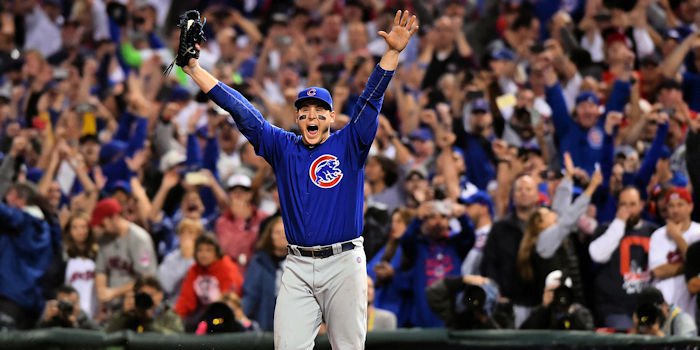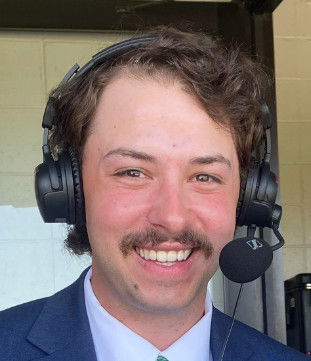
Reasons why Cubs dynasty never came to fruition: Part 2 |
Chicago Cubs fans deserve better. I’ve written those words far too many times over the last couple of years. The Cubs finally won their elusive championship in epic fashion during the 2016 World Series — but since then have fallen back into the trap of being lovable losers.
A fanbase that pays top dollar for a TV channel, tickets, and fan experiences is now enduring bad baseball — and a big market organization in their second franchise-wide rebuild in a decade. So what went wrong? We decided to list 10 reasons why the Cubs dynasty never came to fruition. Here is part 2:
This one is on brand with the failure to develop pitching, because not only did the Cubs throw money at their pitching problems — but they also threw prospects at their pitching problems. In 2017, the Cubs appeared to be one pitcher away from contending for a repeat World Series Championship. At the trade deadline, the Cubs traded two of their top organizational prospects: slugger Eloy Jimenez and right-handed pitcher Dylan Cease for Jose Quintana. Quintana was a fine pitcher for the White Sox, and for the Cubs, he was average. He was under club control for multiple years, but he was never worth the price they paid for him — and their farm system was depleted. The kicker is that Justin Verlander was available and wanted to go to Chicago. Instead, the Cubs elected to trade for the cost-effective Quintana instead — and Verlander has since won two Cy Youngs, made three all-star appearances, and won two World Series — which would’ve certainly helped on the North Side of Chicago.
It seems like the trend of mistakes for the Cubs was the combination of not keeping people in Chicago longer or not getting rid of them sooner. 2019 was Joe Maddon’s last season on his contract with the Cubs, and the Cubs did not negotiate with him and let him roll into the season without a contract heading into the offseason. Similarly, Theo Epstein appeared to know he was going to leave the Cubs after the 2020 season. It is unknown whether Theo did not want to be a part of another rebuild, or protect his legacy — but the fact of the matter is that Theo left Jed Hoyer with a very difficult situation, and did not have interest in staying any longer in Chicago. Part of rebuilding included the manager and the president of baseball operations, and the end of both regimes were handled poorly by the Cubs — and that lack of urgency may have cost the Cubs a year or two in their competitive window.
For years it was rumored that Bryce Harper had an interest in coming to Chicago Cubs. The 2018 season had just finished, and the Cubs had won the most games in the NL but were chased down in game 163 and the Wild Card to be knocked out in heartbreaking fashion. The Cubs needed a big bat. Lucky for them, two generationally talented athletes were on the free market — Bryce Harper and Manny Machado. Both have been phenomenal for their perspective teams and would have been a major boost to a Cubs team that was a hitter away form being the class of the NL. Instead, the Cubs elected to cut their baseball spending and begin to act like a small market team, with their biggest signing of the offseason being a 2-year, 5 million dollar deal to Daniel Descalso — while the Cubs fans watched the Phillies and Padres spend the money they wanted their team to spend, sounds all too familiar.
While I mentioned that the way the Cubs handled the core was not well executed by the front office, I needed an entirely different category for Anthony Rizzo. Rizzo was the Cubs’ captain and the heart of the team for a decade. Rizzo was one of the first targets of the Epstein/Hoyer regime, and he endured years of losing before being one of the best players on the team that finally won it all. Rizzo became a beloved icon in the city for multiple reasons, and on the field, he was everything the Cubs could have wanted. Rizzo was gifted with the bat, played gold glove defense, was a leader in the locker room, and was one of the most consistent players in the sport. On top of all of this, Rizzo was underpaid during his prime. It made way too much sense to make Anthony Rizzo a Cub for the remainder of his career, and let him play first base and shift into a DH for the next great Cubs team. Instead, there is animosity between the organization and one of the franchise’s best players of all time.
A lot has been made about this as of late, but Willson Contreras’ situation was massively mishandled by the Cubs. To quote a piece I wrote last week: “In 2021, when the Cubs let Kyle Schwarber walk and traded other members of the core: Rizzo, Baez, and Kris Bryant — Contreras made perfect sense to be the player the Cubs extend and make a primary piece of their next great Cubs team. But an extension was never worked out before Contreras’ walk year in 2022 — a road the Cubs were all too familiar with from just a year ago with their championship core. In fact, it had been reported that the Cubs hadn’t engaged in substantive discussions with Contreras about an extension since 2017. Contreras was dangled in trade rumors instead, and while it sucked for Cubs fans to brace for saying goodbye to one of their favorite players again — something big market teams should not have to do as routinely as the Cubs have had to — the Cubs were once again rebuilding — something big market teams should not have to do as routinely as the Cubs have had to — and trading Contreras for a stockpile of young talent during an All-star Season made at least some sense from a baseball perspective because losing Contreras for nothing would be inexplicable. The trade deadline in 2022 then came and passed. Contreras said goodbye to the Cubs fans and his teammates. He was emotional but prepared to depart — and instead, the Cubs let him twist in the wind and brought him back for the back half of 2022. “ Not only did they not keep Contreras around, but they got nothing in return for a generational talent at catcher. Why not sign Contreras to an extension and make his prime a part of the next great Cubs team? Why not trade Contreras at the 2021 deadline with more control and value to opposing teams if you knew he was not a part of your long-term future? The bottom line is like has been the case with a lot of Cubs; the organization failed to make the most of the situation.Jose Quintana trade
Lameduck year of Joe Maddon / Theo Epstein
Not active in Harper/Machado free agency
Not making Anthony Rizzo a Cub for life
The way Willson Contreras was handled






